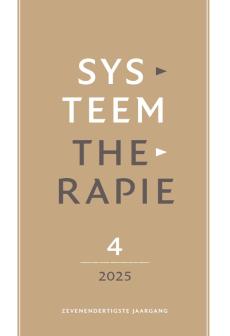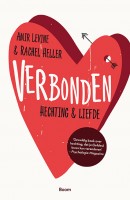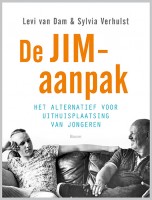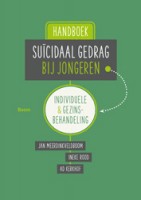Eigen Kracht-conferentie, een democratisch besluitvormingsproces
Summary
Family Group Conferences, a Democratic Decision Making Process
Over ten years' experience with the Family Group Conference decision making model in the Netherlands has shown that when the network around people is widened and is appealed to for their abilities and capacities, major change can occur in help and care. Participants derive pride from the plan they have developed within their own network, committing themselves to solving problems that touch them and their near ones. The key is that they can keep control over their own lives. Authority being taken instead of being given is strengthening in itself.
Family Group Conferences are an answer to compartmentalized structures of services and authorities where care professionals sometimes work separately from each other. Mobilizing the referred person's network is not a matter of course, nor is the change towards a more resilient society. Activating this resilience should become the core task of the professional, where professionalism is measured against the increase of mutual involvement instead of the number of applied interventions. This requires that professionals change their perspective: they must let go of their control concerning citizens and the problems in their lives. This implies more than just pointing and demanding that people take more responsibility, which the authorities in these financially tight times are more and more often guilty of. Prior to this the authorities must return control to their citizens in the knowledge that people will take their responsibility when they are given control.
Literatuur
- Clarijs, R. , & Malmberg, T. (eds.) (2012). The quiet revolution – Aggrandising people power by Family Group Conferences (Academy for Public Change). Amsterdam: SWP.
- CYPFA (1989). Children, young persons and their families act 1989 (Nieuw-Zeeland). (Te vinden op www.legislation.govt.nz/pdflink.aspx?id=dlm147087.)
- Frieling, M. A. (2008). Een goede buur – ‘Joint production’ als motor voor actief burgerschap in de buurt. Proefschrift Rijksuniversiteit Groningen. Groningen: uitgave in eigen beheer.
- Boer, N. de, & Lans, J. van der (2011). Burgerkracht – De toekomst van het sociaal werk in Nederland. Den Haag: Raad voor de Maatschappelijke Ontwikkeling.
- Jagtenberg, R. , Hulst, B. van, & Roo, A. van (2011). Maatschappelijke opbrengsten van Eigen Kracht-conferenties in het kader van geïndiceerde jeugdzorg trajecten met een toespitsing op multi-probleem gezinnen. Delft: TU Delft/IPSE-studies.
- Schuurman, M. (2011). Opbrengsten en effecten van EK-c. Houten: Bohn, Stafleu & Van Loghum. (De onderzoeken uit deze metastudie zijn te vinden op http://www.eigen-kracht.nl/nl/inhoud/onderzoeksresultaten.)
- Schuurman, M. & Mulder, C. (2011). Eigen Kracht-conferenties bij gezinnen in de regio Amsterdam – Wat levert het op? Nieuwegein/Ermelo: Kalliope Consult/Antropol.
- Schuurman, M. , & Mulder, C. (2012). Besparingen door Eigen Kracht-conferenties in de Stadsregio Amsterdam – Resultaten van vervolgonderzoek. Nieuwegein/Ermelo: Kalliope Consult/Antropol.
- Wijnen-Lunenburg, P. , Beek, F. van, Bijl, B. , Gramberg, P. , & Slot, W. (2008). De familie aan zet – De uitkomsten van Eigen Kracht-conferenties in de jeugdbescherming met betrekking tot veiligheid, sociale cohesie en regie. Duivendrecht/Voorhout: PI Research/WESP.
 © 2009-2026 Uitgeverij Boom Amsterdam
© 2009-2026 Uitgeverij Boom Amsterdam
ISSN 0924-3631
De artikelen uit de (online)tijdschriften van Uitgeverij Boom zijn auteursrechtelijk beschermd. U kunt er natuurlijk uit citeren (voorzien van een bronvermelding) maar voor reproductie in welke vorm dan ook moet toestemming aan de uitgever worden gevraagd:
Behoudens de in of krachtens de Auteurswet van 1912 gestelde uitzonderingen mag niets uit deze uitgave worden verveelvoudigd, opgeslagen in een geautomatiseerd gegevensbestand, of openbaar gemaakt, in enige vorm of op enige wijze, hetzij elektronisch, mechanisch door fotokopieën, opnamen of enig andere manier, zonder voorafgaande schriftelijke toestemming van de uitgever.
Voor zover het maken van kopieën uit deze uitgave is toegestaan op grond van artikelen 16h t/m 16m Auteurswet 1912 jo. Besluit van 27 november 2002, Stb 575, dient men de daarvoor wettelijk verschuldigde vergoeding te voldoen aan de Stichting Reprorecht te Hoofddorp (postbus 3060, 2130 KB, www.reprorecht.nl) of contact op te nemen met de uitgever voor het treffen van een rechtstreekse regeling in de zin van art. 16l, vijfde lid, Auteurswet 1912.
Voor het overnemen van gedeelte(n) uit deze uitgave in bloemlezingen, readers en andere compilatiewerken (artikel 16, Auteurswet 1912) kan men zich wenden tot de Stichting PRO (Stichting Publicatie- en Reproductierechten, postbus 3060, 2130 KB Hoofddorp, www.cedar.nl/pro).
No part of this book may be reproduced in any way whatsoever without the written permission of the publisher.
Nieuwsbrief Boom Psychologie
Meld u nu aan en ontvang maandelijks de Boom Psychologie nieuwsbrief met aantrekkelijke aanbiedingen en de nieuwe uitgaven.
Aanmelden



